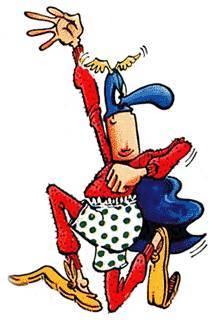Was Evan Hansen punished enough for his sin?
Karleigh420
Swing Joined: 11/9/18
#26 Was Evan Hansen punished enough for his sin?
Posted: 8/14/19 at 10:46amWords fail is a metaphor for confessional
Impossible2
Broadway Legend Joined: 3/31/18
#27 Was Evan Hansen punished enough for his sin?
Posted: 8/14/19 at 3:11pm
darquegk said: "It's a saccharine "World's Greatest Dad," which had the much more daring and dangerousmoral that "some people really are better off dead, and are not deserving of love or empathy.""
Yes I loved the film MUCH more than musical version.
It was a much better social commentary than DEH x
#28 Was Evan Hansen punished enough for his sin?
Posted: 8/14/19 at 3:29pm
evan deserves the electric chair 100%
InTheBathroom1
Broadway Star Joined: 10/6/18
#29 Was Evan Hansen punished enough for his sin?
Posted: 8/14/19 at 3:39pmThat’s also why they keep casting Evan younger. The smaller, younger, and more fragile he looks, the easier it is to empathize with him.
mattyp4
Featured Actor Joined: 5/11/04
#30 Was Evan Hansen punished enough for his sin?
Posted: 8/14/19 at 5:55pm
Rainah said: "Rather, how does the NARRATIVE treat Evan's actions? Not the plot but how the structure of the show tells us how we are supposed to feel about it.
Pretty much every choice made in how to present the plot, is designed to make us empathize with Evan and to take focus off of the harm he caused."
In other words, DEH is an emotionally manipulative show. Something I've been saying since I saw it Off-Broadway in previews. The narrative and all the sappy ballads tell us we're supposed to empathize with Evan Hansen but I had a really hard time doing so.
#31 Was Evan Hansen punished enough for his sin?
Posted: 8/14/19 at 6:29pmSpeaking of mentally ill, manipulative but pathetic young protagonists, where the hell is my GYPSY II: DID YOU HEAR ABOUT THE BLANCHARDS?
#32 Was Evan Hansen punished enough for his sin?
Posted: 8/15/19 at 3:09pm
Pretty much every choice made in how to present the plot, is designed to make us empathize with Evan and to take focus off of the harm he caused.
Agreed. Convenient plot holes and subject avoidance assist along the way. The only other musical I loathed as much as DEH was Spring Awakening.
megs17
Swing Joined: 11/17/16
#33 Was Evan Hansen punished enough for his sin?
Posted: 8/15/19 at 5:28pm
VotePeron said: "Evan suffered zero repercussions. He gains a fabulous new wardrobe and the loss of all ticks and stutters. How anyone defends this show is beyond me."
As a defender of this show, I do want to point out that he doesn't suddenly gain confidence and a sense of style as a result of his lie. The scene in the orchard takes place a year after the events of the rest of the show, and it's made clear that Evan got there by actually managing his anxiety the right way: getting a job that forces him to interact with people, going to community college, not letting himself hide from the world so much, anymore. It's supposed to show that even though everything that came from the lie felt like it was helping him in the moment, it really wasn't. He didn't actually improve until he put in the work, the hard way.
A lot of things said in this thread are true. The show itself is very sympathetic towards Evan in how it's framed, probably to the point that more critical viewers feel manipulated. But it's only sympathetic to him because it's framed from his point of view, to the point that in the novelization, he's the one telling the story in first-person. The show doesn't often shy away from giving the audience a look at the fallout for the other characters, but when Evan is left alone, it follows him. The framing of Sweeney Todd is very sympathetic to its title character in a very similar way, but nobody will argue that it's encouraging murder and cannibalism. I think the contemporary nature of Dear Evan Hansen leads people to project a lot onto it and to hold its storytelling to the moral standard of a real person. And even then, Evan is a teenage boy with no real adult figure around to guide him, and at the very least, debilitating anxiety, if not some variety of autism. His actions in the show are morally wrong, but they do unfold in a believable way and are understandable, considering everything that is presented about the character.
And, honestly, even calling his actions morally wrong feels like an oversimplification, because much of the conflict of the show revolves around Evan trying to navigate and understand the morality of his actions, from his very immature teenage perspective. Yes, it's obviously terrible to lie to a grieving family about being friends with their dead son. But, in a weird, screwed-up way, that lie helped people. That's why he continued it. He provided Cynthia with comfort and closure, Larry with a chance to face the grief he was hiding from, and Zoe with a pathway to forgiving a person she had deemed unforgivable. It was wrong, but some good did come out of it, which is what Evan repeatedly made note of and used to justify his actions. And when it reached a point in the show where Evan tried to further the lie with the purely selfish, specific goal of benefitting himself, it collapsed within the same scene. He was immediately punished for it, underscored with a dark reprise of You Will Be Found. That seems to send a pretty strong message, to me.
After Eight
Broadway Legend Joined: 6/5/09
#34 Was Evan Hansen punished enough for his sin?
Posted: 8/15/19 at 11:12pm
megs17 wrote:
“The framing of Sweeney Todd is very sympathetic to its title character in a very similar way,“
Yes, which is one of the (many) reasons this show is so reprehensible. It remains the worst musical I've ever been subjected to.
#35 Was Evan Hansen punished enough for his sin?
Posted: 8/16/19 at 9:39am
megs17 said: "VotePeron said: "Evan suffered zero repercussions. He gains a fabulous new wardrobe and the loss of all ticks and stutters. How anyone defends this show is beyond me."
As a defender of this show, I do want to point out that he doesn't suddenly gain confidence and a sense of style as a result of his lie. The scene in the orchard takes place a year after the events of the rest of the show, and it's made clear that Evan got there by actually managing his anxiety the right way: getting a job that forces him to interact with people, going to community college, not letting himself hide from the world so much, anymore. It's supposed to show that even though everything that came from the lie felt like it was helping him in the moment, it really wasn't. He didn'tactuallyimprove until he put in the work, the hard way.
A lot of things said in this thread are true. The show itself is very sympathetic towards Evan in how it's framed, probably to the point that more critical viewers feel manipulated. But it's only sympathetic to him because it's framed from his point of view, to the point that in the novelization, he's the one telling the story in first-person. The show doesn't often shy away from giving the audience a look at the fallout for the other characters, but when Evan is left alone, it follows him.The framing of Sweeney Todd is very sympathetic to its title character in a very similar way, but nobody will argue that it's encouraging murder and cannibalism. I think the contemporary nature of Dear Evan Hansen leads people to project a lot onto itand to hold its storytelling to the moral standard of a real person. And even then, Evan is a teenage boy withno real adult figure around to guide him, and at the very least, debilitating anxiety,if not some variety of autism. His actions in the show are morally wrong, but they do unfold in a believable wayand are understandable, considering everything that is presented about the character.
And, honestly, even calling his actionsmorally wrong feels like an oversimplification, because much of the conflict of the show revolves around Evan trying to navigate and understand the morality of his actions, from hisvery immatureteenage perspective. Yes, it's obviously terrible to lie to a grieving family about being friends with their dead son. But, in a weird, screwed-up way, that lie helped people. That's why he continued it. He provided Cynthia with comfort and closure, Larry with a chance to face the grief he was hiding from, and Zoe witha pathway to forgiving a person she had deemed unforgivable. It was wrong, but some good did come out of it, which is what Evan repeatedly made note of and usedto justify his actions. And when it reached a point in the show whereEvan triedto further the liewith thepurely selfish, specific goal of benefitting himself, it collapsed within the same scene. He was immediately punished for it, underscored with a dark reprise of You Will Be Found. That seems to send a pretty strong message, to me."
Thank you for such a well-crafted post. I'm predisposed to like the show because I like art that challenges us and/or encourages us to look at outsiders or people who are different from us--that asks us to enlarge our empathy, and possibly acknowledge we are more like people who are "dislikable" or do "bad" things than we are often comfortable acknowledging. To me, this is the essence of drama--going all the way back to Oedipus.
It also seems odd to me that anyone would accuse any musical of being emotionally manipulative. Because every musical is emotionally manipulative. That's how music works--manipulatively. There's no way for music to give an an objective reading of a scene. Music creates an emotional color.
To be honest, I don't think the score is great. It's serviceable, but to me not outstanding (I feel the same way about every score by Stephen Schwartz, to give an idea of where I'm coming from). So no one's convincing me of anything with the argument that I've been tricked into thinking an awful person is wonderful on the basis of the manipulative score.





